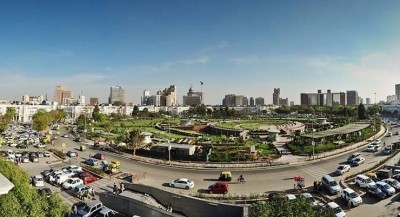Last year saw a number of cities around the world announcing major plans to transform into smart cities (read more on recent smart city projects - Songdo, Santiago and Surat), leveraging IoT/M2M connectivity to link up various functionalities and infrastructure within the cities to deliver enhanced services for citizens. Smart cities leverage thousands of M2M nodes, 3G and 4G connectivity, big data/analytics and cloud computing to deliver real-time information and on-demand services/content to millions of city dwellers. The M2M nodes collect and curate huge amounts of data on a daily basis which is then processed and analyzed and trasmitted back to various end-user terminals, supporting various applications - from in-city parking, traffic management, smart metering, garbage collection, security management and other functions supporting the smooth running of large cities.
Among these functionalities, smart city traffic management and parking projects have become one of the key areas of implementation, driven primarily by the need to manage increasing traffic woes in the cities and also to address the pollution concerns in some of the fast growing countries. According to Juniper Research, smart city traffic management and parking projects will reduce cumulative global emissions in the order of 164 MMT (million metric tonnes) of CO2 between 2014 and 2019 -- equivalent to the annual emissions produced by 35 million vehicles.
The report said that the establishment of a sensor-networked and monitored city communications infrastructure -- efficiently phasing traffic lights, and providing real-time guidance to drivers -- can aid significantly in reducing congestion. At the same time, said Juniper Research, digitally monitored parking spaces are able to dynamically alter prices according to available space, helping to control the time spent cruising for parking. Delhi and Jakarta are some of the large cities globally who have laid out plans to leverage M2M/IoT technologies to address their traffic management needs.
Service providers' participation across smart city projects will become key in powering the connectivity and in driving the eventual outcomes such as the above. Just last week, Ooredoo Qatar announced its participation as Lead Partner in the Smart Cities Council, a leading industry coalition formed to accelerate the transition to smart, sustainable cities together with major technology providers such as IBM, Microsoft, MasterCard, and Cisco. November last year, Telefonica announced that it is pursuing extensive collaboration with public institutions in various countries in the region and globally including town councils and regional governments to continue its successful Smart Cities initiatives in Spain and also in Brazil and Chile.
Steffen Sorrel, Report Author
Cooperation between all parties, as we have seen in Amsterdam for example, is essential. Furthermore, cities need standards and open data to avoid information roadblocks.




















